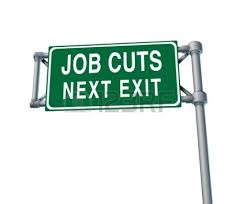
This pessimism has bedeviled President Obama and ushered in a wave of Republican victors in the midterm election.
The latest analysis was done by longtime Democratic strategists Stan Greenberg and James Carville, former advisers to President Clinton. Clinton may have been the last president to serve at a time when positive economic indicators actually matched a positive outlook by the public. But those days are long gone.
“People are aware of improvements in the macro economy and in the labor market, but they are even more aware that new jobs pay less and people have not seen a raise in a very long time,” said Greenberg and Carville, in a new analysis for Democracy Corps, a Democrat-oriented research organization.
The public mood brings to mind the old saw that the country should pay close attention to the ailments that plague the Black community because eventually the entire country will come down with the same sickness. So it is with the economy. For decades Blacks have bemoaned an unemployment rate at least twice the national average, stagnating wages that were consistently much lower than whites, a lack of appreciation for homes in Black neighborhoods, and an ever-present fear that we would always be the first fired when the company was handing out pink slips.
There has an ever-present doom that accompanied Black employment in white companies—fear that the office politics and the subtle racism that surrounded us would be our undoing. This feeling was translated as stress by our bodies—causing African-Americans to be at the top of most every negative health indicator in the country.
Now, that ever-present feeling of doom has caught up to the rest of America. You might even say the average American worker now has just a little taste of what it’s like to live and work in Black skin in America.
“The state of the American economy looms over the public, creating long-term pessimism about the state of the country, making the economy, wages and jobs the biggest factor in people’s vote in the last national election and the next,” Greenberg and Carville said in their analysis.
It appears that it’s beginning to dawn on economists and analysts that their traditional way of judging the state of nation, by studying the macro indicators like unemployment, gross domestic product and the pace of new job creation, can no longer predict how the country is really doing. If Americans are living in a constant state of fear, if they can sense they are always on the verge of being laid off, they will stop spending money, they won’t buy that new house or lawnmower or refrigerator, the lawnmower company will have to hand out pink slips, and the cycle starts all over again. This is the place that corporate greed and the shredding of benefits and job security has gotten us. It’s a poisoning of the national outlook that has slowly been cooking into the American soul for years.
“The economy is the largest contributor to an abiding pessimism about the country as a whole, with about two-thirds saying the country is headed in the wrong direction … With jobs paying less, 36 percent report they are working more hours or took second jobs to make ends meet,” the analysts say.
If the average American hasn’t seen a raise in years while the prices of groceries of household good and groceries continue their steady march upward, in effect every year most of us are experiencing a cut in pay. The trip to the grocery store doesn’t yield nearly as many items as it used to. Until that turns around, Americans are going to continue to feel like this ship is sailing in the wrong direction.


